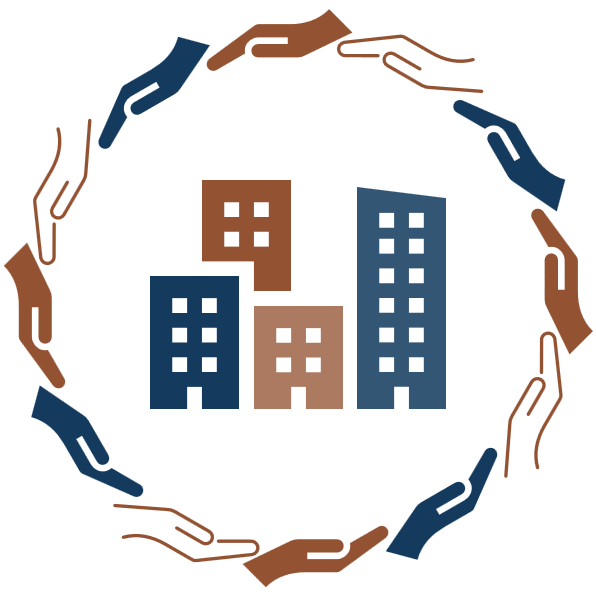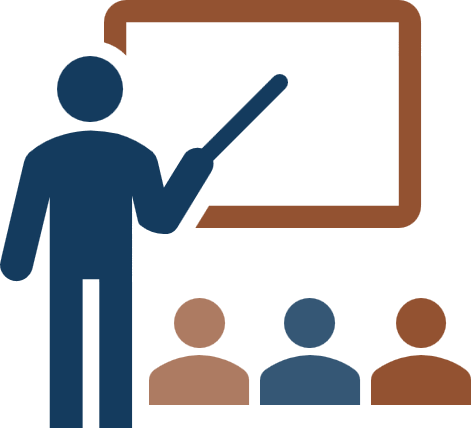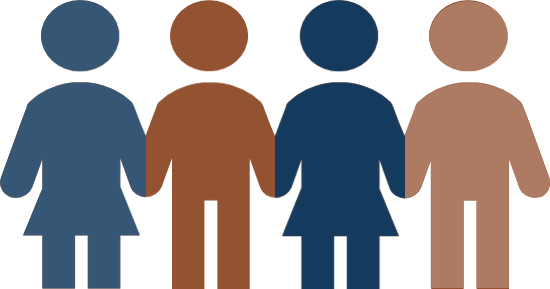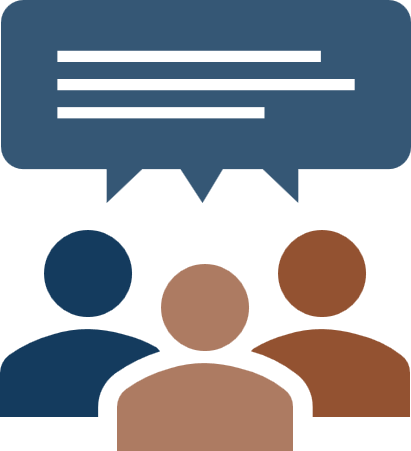Community Resources
 As structural engineers, we frame our contributions to society through our professionalism and ethics in the duties we perform. In our practice, we serve society and are active participants in the fabric of the communities in which we live. As structural engineers, we cannot limit ourselves to solving only problems of science and engineering. Ignoring the social, economic, and political contexts surrounding our engineering work is a path to irrelevancy. Our active participation includes a moral obligation to right the social and ethical wrongs we observe.
As structural engineers, we frame our contributions to society through our professionalism and ethics in the duties we perform. In our practice, we serve society and are active participants in the fabric of the communities in which we live. As structural engineers, we cannot limit ourselves to solving only problems of science and engineering. Ignoring the social, economic, and political contexts surrounding our engineering work is a path to irrelevancy. Our active participation includes a moral obligation to right the social and ethical wrongs we observe.
Therefore, as part of our active strategic planning process, we will critically examine the ethical values, equity, and diversity present in our internal processes and practices related to our staff, clients, and consultants. Please read our full statement here.
 Diversity and Inclusion Training
Diversity and Inclusion Training
CONVERGE Training Modules
CONVERGE Training Modules are part of a larger initiative to advance social science and interdisciplinary extreme events research efforts through identifying, mapping, and training a diverse group of researchers. The modules cover a wide range of topics and are designed to help prepare researchers to carry out extreme events research that is coordinated, comprehensive, coherent, ethically grounded, methodologically sound, and scientifically rigorous. https://converge.colorado.edu/resources/training-modules
AIA's Guides for Equitable Practice
The American Institute of Architects (AIA) Guides for Equitable Practice, done in partnership with the University of Washington and the University of Minnesota, and AIA's Equity and the Future of Architecture Committee (EQFA), are a vital part of AIA’s long-term commitment to lead efforts that ensure the profession of architecture is as diverse as the nation they serve. These guides will help you make the business and professional case for ensuring that your organization meets the career development, professional environment, and cultural awareness expectations of current and future employees and clients. https://www.aia.org/resources/6246433-equitable-guides-to-practice
NCSEA Diversity, Equity & Inclusion Webinars
In accordance with their Call to Action released earlier this year, NCSEA is working to identify and eradicate behaviors that perpetuate racism and inequality within the profession. NCSEA has partnered with a strategic diversity and inclusion practitioner to develop a series of webinars to introduce attendees to diversity, equity, inclusion, and speak to creating a multicultural organization via inclusive policies, programs, and practices. http://www.ncsea.com/topics/96/deiseries/
 K-12 Engagement Opportunities
K-12 Engagement Opportunities
SESI Classroom Education and Outreach
School Earthquake Safety Initiative (SESI) follows a charge to use education in the classroom to create an ongoing dialog with parents, teachers, and administrators and to develop advocates for earthquake school safety. They bring together EERI regional and student chapters to collaborate on delivering the activities and serving as expert resources for stakeholders. https://www.eeri.org/projects/schools/sesi-classroom-education-and-outreach/
Project Lead the Way
Project Lead The Way (PLTW) empowers students to develop and apply in-demand, transportable skills by exploring real-world challenges. Through their pathways in computer science, engineering, and biomedical science, students not only learn technical skills, but also learn to solve problems, think critically and creatively, communicate, and collaborate. PLTW also provides teachers with the training, resources, and support they need to engage students in real-world learning. https://www.pltw.org/
High School Linked Learning
By combining its four pillars of rigorous academics, work-based learning, career technical education, and personalized comprehensive support, High School Linked Learning aims to prepare Oakland's students for college, career, and community success. https://www.ousd.org/linkedlearningold
NBSE Pre-College Initiatives
The National Society of Black Engineers (NBSE) provides numerous resources and opportunities to engage and expose K-12 students to engineering and technology, including hands-on activities and mentor programs. The NBSE Pre-College Initiatives provide activities to help students discover firsthand how engineering and technology relate to the world around them and discover the excitement of academic excellence, leadership, technical development and teamwork. https://nsbe.org/intro/k-12.html
 Visibility and Inclusion
Visibility and Inclusion
AAAEA
The Arab-American Association of Engineers and Architects (AAAEA) is a professional Arab American association dedicated to help, strengthen, empower and inspire its members for excellence. AAAEA promotes and advocates the Arab American Engineers, Computer Science and Architects in North America, by providing career and educational enhancement programs, technical exchange, fellowship, and community service. AAAEA is a non-profit, non-political and non-religious Professional Association. https://nationalaaaea.org/
AISES
The American Indian Science and Engineering Society (AISES) is a national, nonprofit organization focused on substantially increasing the representation of American Indians, Alaska Natives, Native Hawaiians, Pacific Islanders, First Nations and other indigenous peoples of North America in science, technology, engineering and math (STEM) studies and careers. The vision of the American Indian Science and Engineering Society (AISES) is for the next seven generations of Native people to be successful, respected, influential, and contributing members of the vast and ever-changing global community. https://www.aises.org/
CIE-USA
The Chinese Institute of Engineers – USA (CIE-USA) is a non-profit professional organization of Chinese-American engineers, scientists and other professionals. The objectives of CIE-USA are to promote Science, Engineering, Technology and Mathematics (STEM) in all communities across United States and provide recognitions to the APA professionals at the national level. http://www.cie-usa.org/
NOMA
The National Organization of Minority Architects (NOMA) has been organized to foster communications and fellowship among minority architects, fight discrimination and other selection policies being used by public and private sector clients to unfairly restrict minority architects’ participation in design and construction, and be an effective source of motivation and inspiration for minority youth. https://www.noma.net/
NSBE
With more than 500 chapters and nearly 22,000 active members in the U.S. and abroad, the National Society of Black Engineers (NSBE) is one of the largest student-governed organizations based in the United States. NSBE, a 501(c)(3) nonprofit organization founded in 1975, supports and promotes the aspirations of collegiate and pre-collegiate students and technical professionals in engineering and technology. NSBE’s mission is "to increase the number of culturally responsible Black Engineers who excel academically, succeed professionally and positively impact the community." https://www.nsbe.org/home.aspx
Qu-AKE
The Queer Advocacy and Knowledge Exchange (Qu-AKE) is a national, nonprofit, inclusive network for professionals working in the fields of civil engineering, architecture, urban planning, geosciences and construction. Qu-AKE exists to ensure visibility and protection of LGBTQ+ professionals in our fields, by facilitating networking opportunities, providing a forum for mentorship, and fighting discrimination against members of our community in the workplace. https://qu-ake.org/
SHPE Leading Hispanics in STEM
SHPE's mission is to change lives by empowering the Hispanic community to realize its fullest potential and to impact the world through STEM awareness, access, support, and development. SHPE’s vision is a world where Hispanics are highly valued and influential as the leading innovators, scientists, mathematicians, and engineers. https://www.shpe.org/
SE3
The Structural Engineering Engagement and Equity (SE3) Project was established with the mission of improving engagement and equity in the structural engineering profession in order to provide meaningful input on improving both of these metrics within the industry. The SE3 Project aims to advance the profession by engaging all structural engineers regardless of gender, age, experience, job title, firm, size, or location. We have affiliated groups in several major metropolitan areas. http://www.se3project.org/
WiSE
Women in Structural Engineering (WiSE) is a network of women structural engineers around the country. This group is not formally a part of any professional organization, rather just provides opportunities for women structural engineers to connect with one another. Their website provides a hub for the various groups formed around the U.S. so that events can be shared and advertised, and information exchanged. https://www.womeninstructuralengineering.org/
